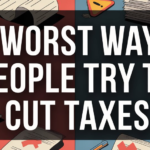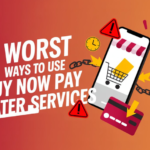Many people think budgeting is just about restricting spending—but in reality, it’s about freedom and control. A good budget is your roadmap to financial security, helping you prepare for emergencies, reduce stress, and reach your goals faster.
In this blog, we’ll explore 7 powerful reasons important budget money is important. Along the way, we’ll use real-life examples and calculations so you can clearly see how budgeting works in practice.
7 Reasons Important Budget Money
1. Budgeting Prepares You for Emergencies
Life can be unpredictable—job loss, medical bills, or car breakdowns can happen anytime. Without a budget, these events can push you into debt.
Recommended Rule: Save 3–6 months of living expenses in an emergency fund.
Example Calculation:
- If your monthly expenses are $4,000, your emergency fund target should be between $12,000–$24,000.
- Saving just $500 per month will build $6,000 in one year and $18,000 in three years.
That’s the power of budgeting—it helps you build a safety net step by step.
2. Prevents Overspending and Builds Smart Habits
Without a plan, it’s easy to spend impulsively. A budget shows where your money goes and helps cut unnecessary costs.
Example Calculation:
- 5 streaming subscriptions at $15 each = $75 per month.
- Canceling 3 of them saves $45 per month = $540 per year.
That money could instead go into savings or debt repayment. Small cuts add up fast.
3. Helps You Achieve Short- and Long-Term Goals
Want to save for a vacation, buy a house, or retire early? Budgeting makes it possible by turning goals into monthly actions.
Example Calculation:
- Goal: Save $10,000 for a home down payment in 2 years.
- Required savings: $10,000 ÷ 24 months = $417/month.
By including this as a line in your budget, you steadily work toward your dream without stress.
4. Budgeting Helps You Pay Off Debt Faster
High-interest debt (like credit cards) eats away at your income. A budget allows you to direct extra money toward repayments.
Example Calculation:
- Credit card balance: $5,000 at 18% APR.
- Minimum payment: $300/month → payoff takes years.
- If your budget adds $200 extra/month, paying $500/month clears the debt in ~13 months instead of several years—saving you thousands in interest.
5. Increases Confidence and Reduces Stress
Budgeting isn’t just financial—it’s emotional. Knowing exactly where your money goes reduces money stress.
A CFP survey found that households who budget report feeling more secure and confident about money than those who don’t.
When you budget, you no longer wonder, “Where did my paycheck go?”—you’re in control.
6. Boosts Mental Well-being and Reduces Decision Fatigue
Money decisions can be exhausting. A budget gives you a clear plan, so you don’t waste energy on daily spending choices.
Example:
Instead of debating whether you can afford dinner out, your budget already sets a weekly dining allowance.
This clarity reduces stress, supports better mental health, and even improves relationships—since money conflicts are one of the leading causes of stress in households.
7. Offers Different Budgeting Styles to Fit Your Lifestyle
Not everyone budgets the same way. Luckily, there are popular budgeting methods that you can choose from:
a) 50/30/20 Rule
- 50% Needs, 30% Wants, 20% Savings/Debt
- Example (Monthly income $5,000):
- $2,500 Needs
- $1,500 Wants
- $1,000 Savings/Debt
- $2,500 Needs
b) 75/15/10 Rule
- 75% Needs, 15% Investments, 10% Savings
- Example ($5,000 income):
- $3,750 Needs
- $750 Investments
- $500 Short-term Savings
- $3,750 Needs
c) Envelope Method
Cash envelopes for categories (like groceries). When the envelope is empty, you stop spending.
d) Zero-Based Budgeting
Every dollar has a purpose—whether for bills, savings, or fun—so nothing is wasted.
Sample Budget Plan for $5,000 Monthly Income
| Category | 50/30/20 Example | 75/15/10 Example |
| Needs (rent, food, bills) | $2,500 | $3,750 |
| Wants (fun, shopping) | $1,500 | — |
| Savings & Debt | $1,000 | $500 savings + $750 investments |
| Total | $5,000 | $5,000 |
Both methods work—it just depends on your goals.
Tips to Start Budgeting Today (U.S. Readers)
- Track your spending using free apps like Mint or YNAB.
- Set clear goals—vacation, emergency fund, or retirement.
- Automate savings so you “pay yourself first.”
- Review monthly and adjust if you overspend.
- Stay accountable—try “loud budgeting” by sharing your goals with friends or family.
How Budgeting Protects You from Debt
One of the most important reasons to budget money is its ability to protect you from falling into debt. Without a plan, people often rely on credit cards or loans to cover expenses, which creates a cycle of borrowing and interest payments. A budget helps you avoid this by showing exactly how much money is available for each category—rent, groceries, transportation, and entertainment—so you don’t spend more than you earn.
Example: Imagine your monthly income is $4,500, and your expenses add up to $4,700 because of unplanned shopping or dining out. That $200 gap usually ends up on a credit card. At an 18% APR, carrying this balance and only making minimum payments could cost you over $40 in interest the first month alone—and thousands over time.
By budgeting, you can see the overspending in advance and cut back on non-essential items, eliminating the need to borrow. Over the long run, this protects your credit score, lowers financial stress, and allows you to focus on saving and building wealth instead of paying interest to lenders.
Conclusion
Budgeting isn’t about saying no to fun—it’s about saying yes to your future. By planning your money, you protect yourself from emergencies, achieve goals faster, pay off debt, and feel more confident about your financial life.
Whether you choose the 50/30/20 rule, the envelope method, or another style, the key is consistency. Remember: every dollar needs a job. Start budgeting today, and watch how your money begins working for you—not against you.










